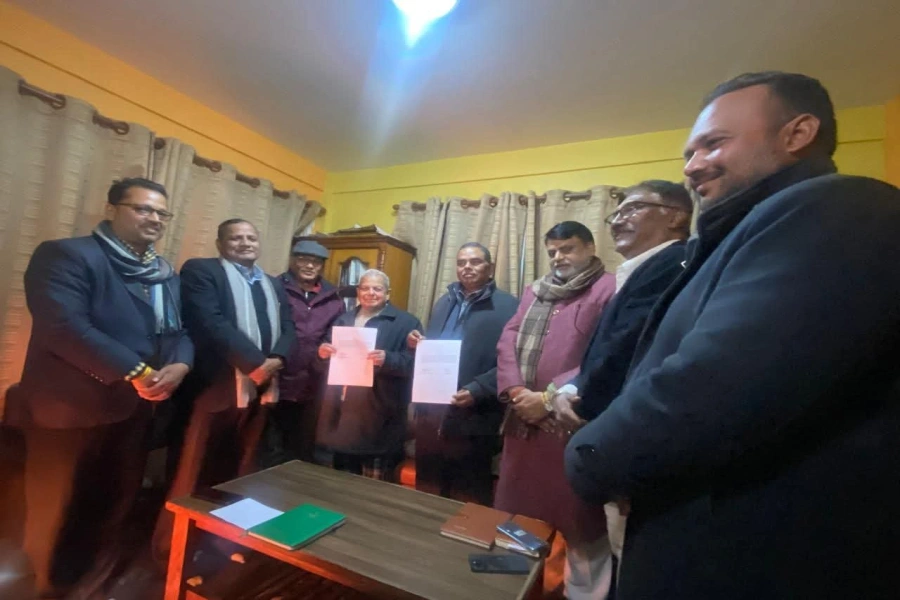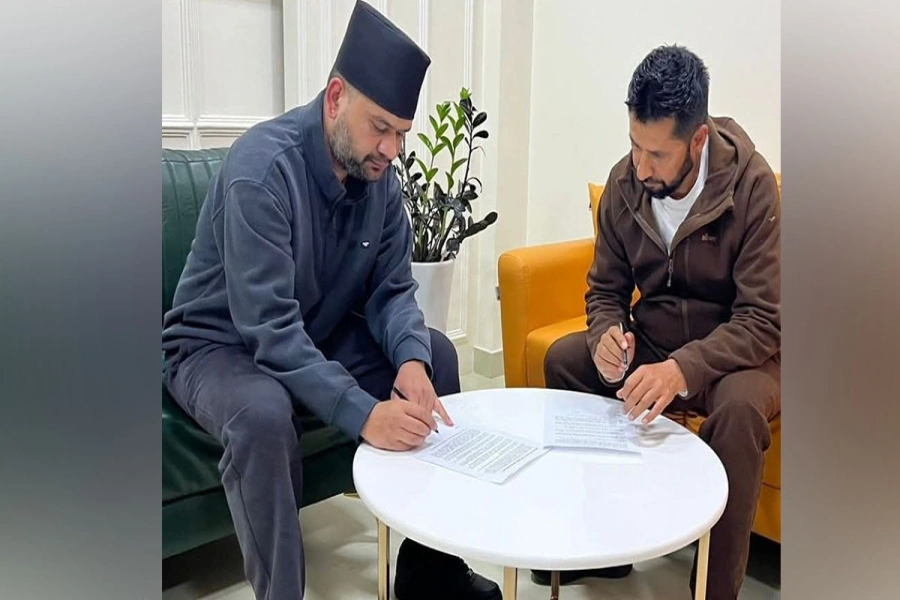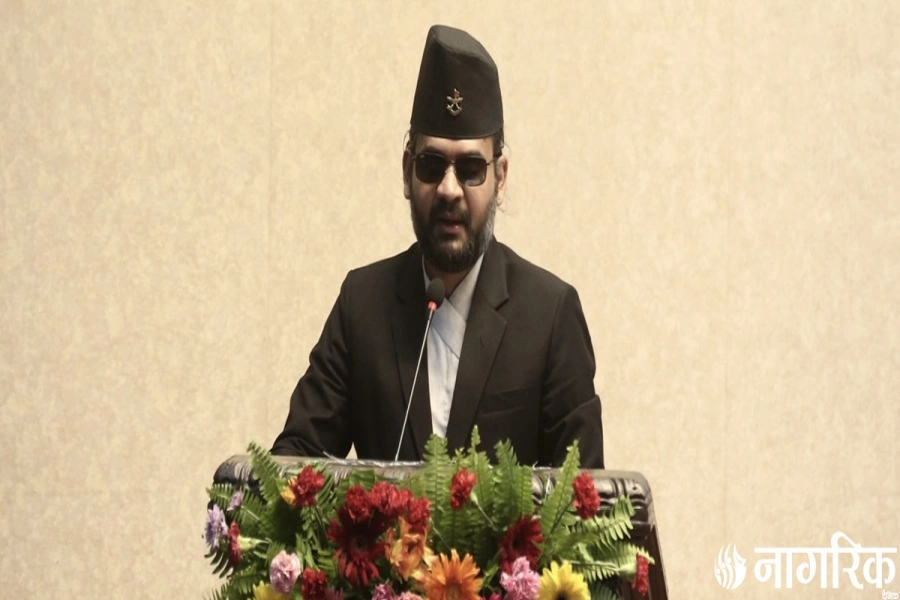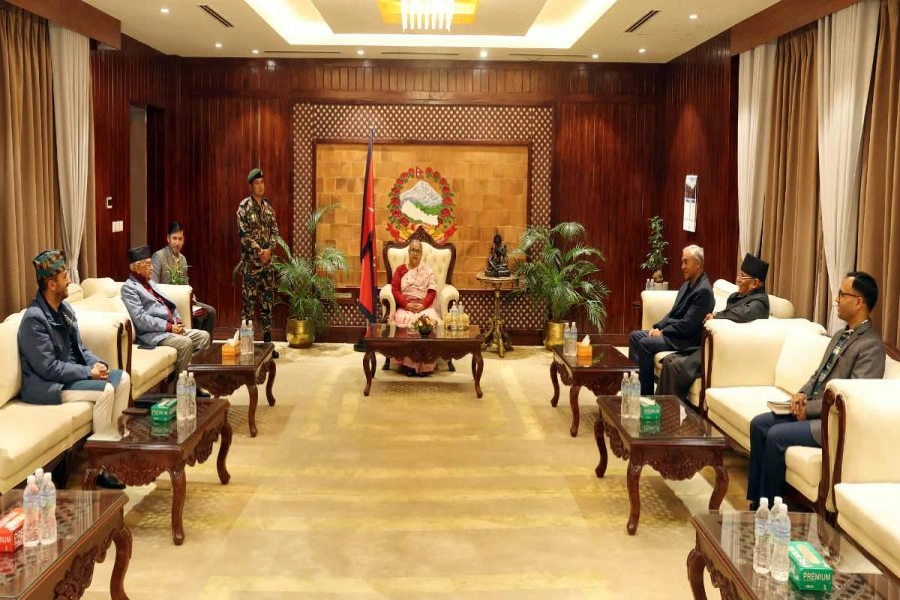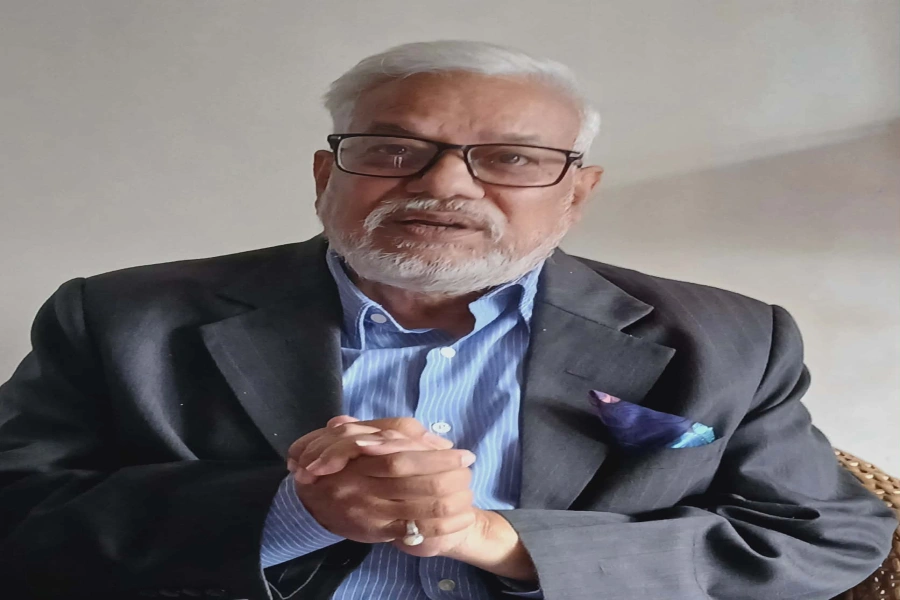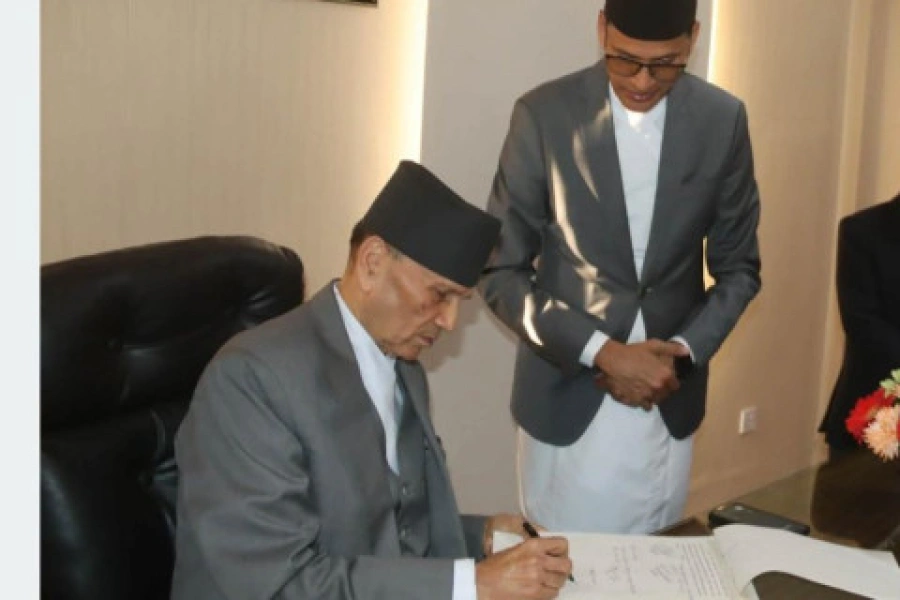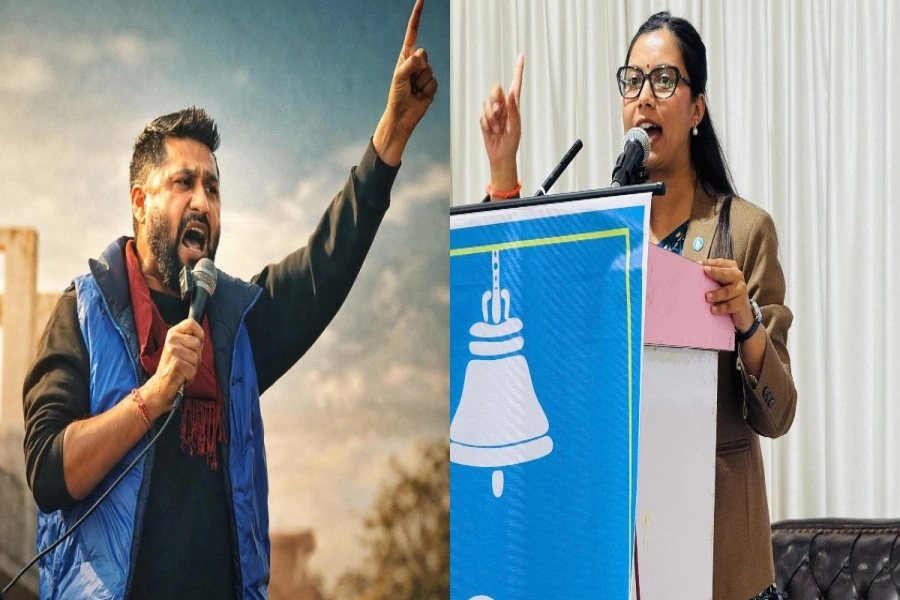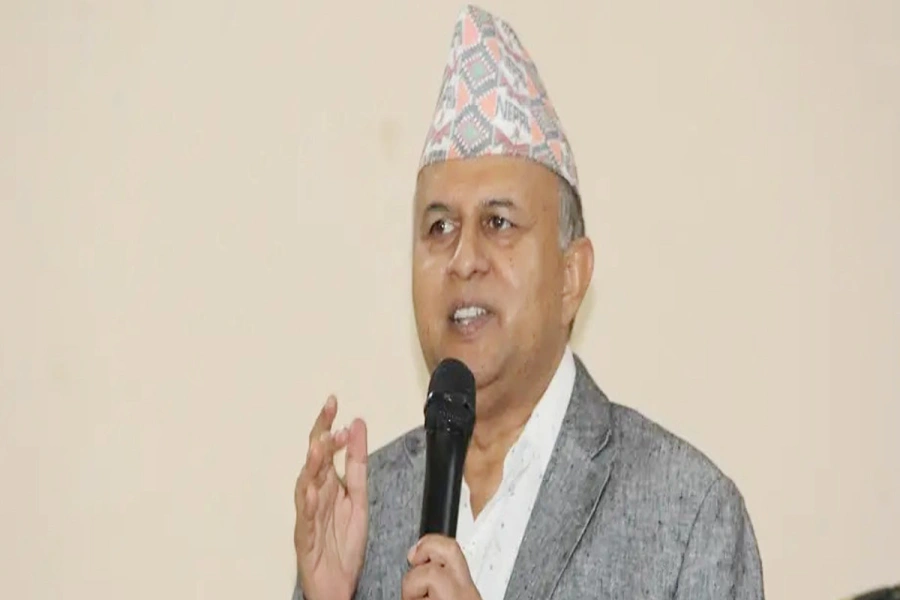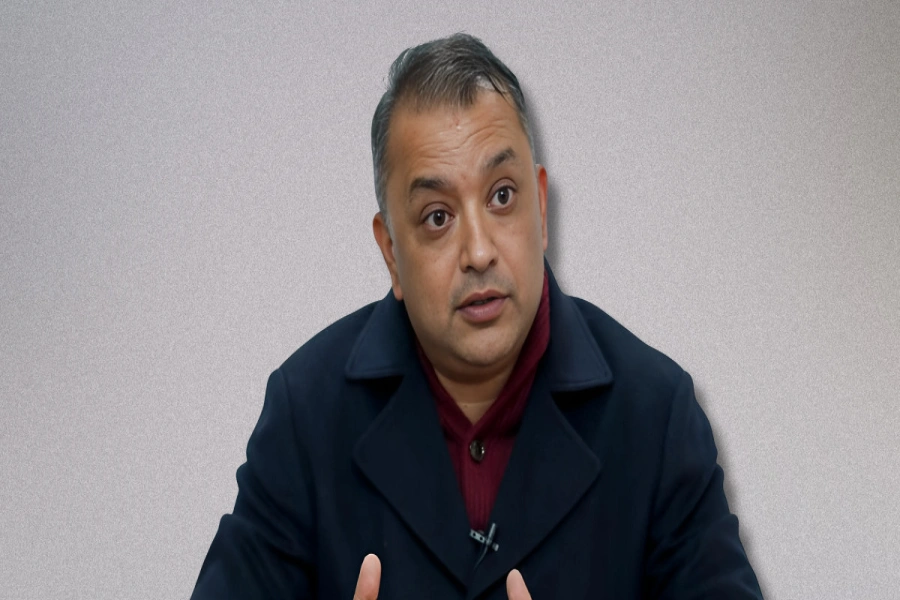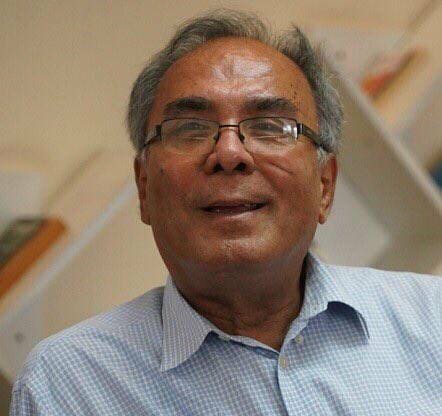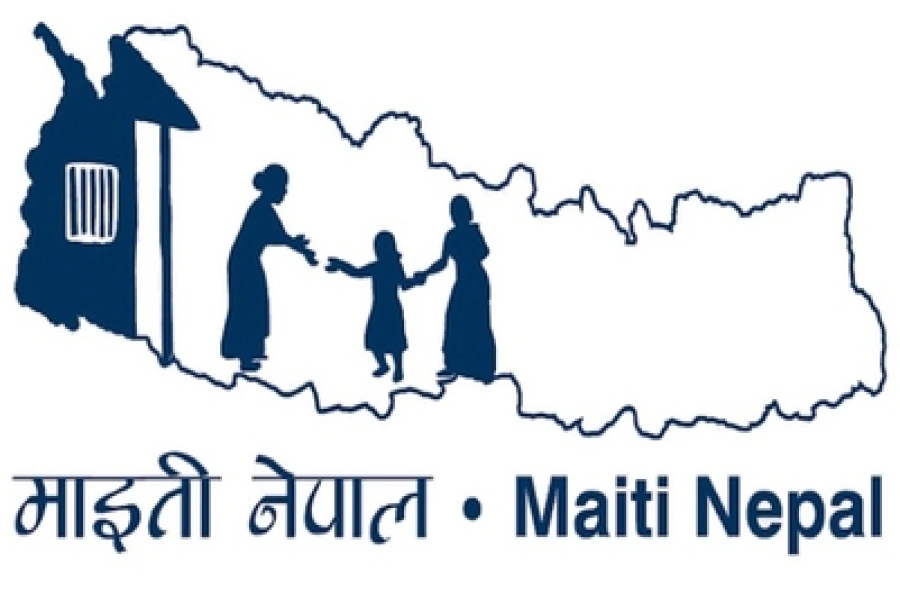Trishna Thapa is the Communication Associate at World Bank Nepal, where she is happy 'getting a human touch out of the technical stuff' that the experts lay out, a task she finds challenging, yet fulfilling. A self-proclaimed movie buff, she likes going back to the good books again and again, in honor of the happy times she had when she first read those precious gems.
Hamro Kitab: For the book-loving society

Recently, she was in conversation with The Week's Sachi Mulmi where she talked about her love for the written world.
Excerpts:What genre of books are you interested in?
I don't like to fixate on a particular genre. Even when I was a kid, I used to read all kinds of books, though I have to admit I didn't read a lot of nonfiction.
How did you start reading? Which books served as preludes?
When I was a child, I used to have a keen interest in newspaper articles, and the Muna magazine by Gorkhapatra Prakashan, which I absolutely loved for two reasons – the comics and the short stories. I used to collect those. My dad was a voracious reader and when he saw that I was interested in reading, he got me my first book – The Famous Five by Enid Blyton. Over the years, I must have read it over fifty times.
How has your reading journey been since then?
In the beginning I didn't understand a lot of words, but Blyton's books were so much fun and imaginative that I didn't let my limited vocabulary stop me. My dad rewarded my enthusiasm for reading by showering me with more books. There was no looking back after that. In school, after a certain grade, we were allowed to borrow a book every two weeks, which was not enough for me. We had to write book reports as well. So, I made a deal with my friends, who were not that much interested in reading books. I offered to write their book reports in exchange for the books, so that I would get to read more. Eventually I moved on to the classic English novels of Charles Dickens and Jane Austen.
Did your love for books ever land you in trouble with school assignments or the likes?
There was a time when I was around 13 or14 and I went looking through my dad's vast collection of books. Not all of them were meant for kids my age, so my dad wasn't sure that he should allow me to read whatever I wanted to. So we used to have a bit of a conflict. I remember even writing a letter to an American author about how my dad didn't let me read her book. Surprisingly, I got a reply, a postcard with her autograph telling me that he was right and that I should probably wait. Come to think of it, I never got around to reading that book. It wasn't that interesting. It's just that I wasn't allowed to read it so I wanted to read it. But now I think that parents should take the trouble of monitoring, although not control, what the kids are reading.
Are you selective when it comes to picking a book?
I actually don't mind a friend recommending a book, though there's a chance that your tastes don't match all the time. But I think going to a bookstore and picking up a random book has its own charm. When I read a new book, I want to read with a blank mind and form my own opinion about that book. I don't delve into books with preconceived notions so I tend to not read book reviews. I don't even read the blurbs actually. Even when I was young, instead of following the hype, I picked books randomly.
So, according to you, what makes a book good enough to read?
That's a difficult question. I like books that make me laugh out loud, and love those that can surprise me. I don't like books that are deliberately preachy and make you think a certain way, like Paulo Coelho's books. But above all, I like books because you don't have to balance the fantasy and reality in them. That's the beauty of it. Certain books make you realize that you don't have to hold back and put yourself in boxes. They are what I consider good books.
With information being so easy and accessible, what role does reading play in today's lifestyle?
You get a lot of exposure these days, but it's superficial and selective. For a deeper perspective, you have to read books. But talking from experience, there are very few books for young adults. I noticed while travelling abroad that there are a lot of books for young people, but in Nepal, there aren't many books for that section of readers. I wish the authors here did something about that and catered more to that segment of the reading audience.
Being a movie fanatic, what is your take on movies based on books?
As a rule, I would say no. I actively hate those people who just watch the movies based on books. But there are a few exceptions, like The Lord of the Rings. I think the movie came out fine because the makers really loved the book and were successful in capturing its soul and bringing it to life onscreen. Unfortunately, it doesn't happen for others, Harry Potter movies are sad examples of that fact.
On Thapa's Bookshelf
A Hitchhiker's Guide to Galaxy
by Douglas Adams
It's about an intergalactic travel of two earthlings that begins when the planet earth is demolished to make way for hyperspace bypass. The book is wacky, crazy, funny and satirical. I don't think merely describing it would do justice to it. There are four books that they call the trilogy of four and these are some of the books that I keep going back to.
Harry Potter series by J K Rowling
One of the main reasons why I love the series so much is because I love Rowling. This is one of the series that I keep on going back t o. I got to read the book for the first time when a friend who had come from US brought a copy. I thought it was absolutely brilliant. I'm crazy about it, so much so that when the last book came out, I waited outside the bookstore to get a copy. That was when I was in India.
1984 by George Orwell
Set in a dystopian future where everything is under a totalitarian rule, it's about how the authority can be manipulated to control people and how language and policies can be tweaked, because of which, people have to be in a constant state of vigilance, and it applies even in the present day reality. I get absolutely scared whenever I think about this book, especially this chilling torture scene at the end.
Tess of the D'urbervilles by Thomas Hardy
Set in the 19th century England, where women were dictated to live under strict rules, it was a radically feministic book when it was first published. It challenges the stereotypes and the ideals of the society. It's about a young girl, abused in all possible ways, and how life changed her and how that change is the reflection of the society she lived in. I was a college student when I read this and the main protagonist really touched me.
Wuthering Heights by Emily Bronte
When I first read it, I had a difficult time wrapping my head around it, because of its complex narrative. But the story is so realistic. People like to call it a love story but it's more about these complex characters and what life does to them. There is so much anger and jealousy that you can actually feel real emotions in those characters. You can even see how those emotions transform their relationships, and even other characters in the process.


